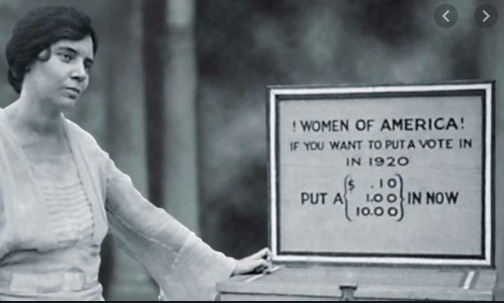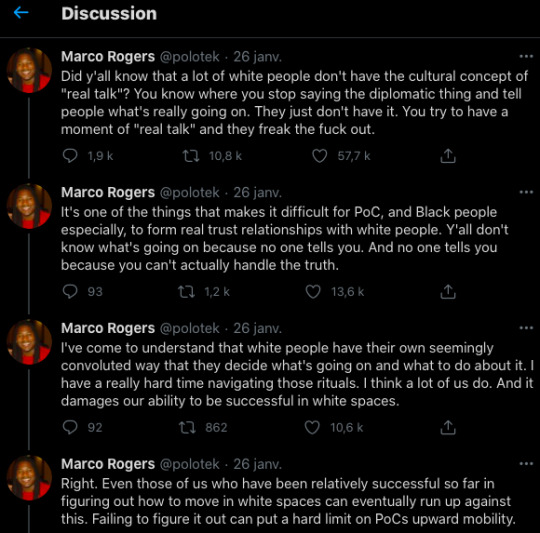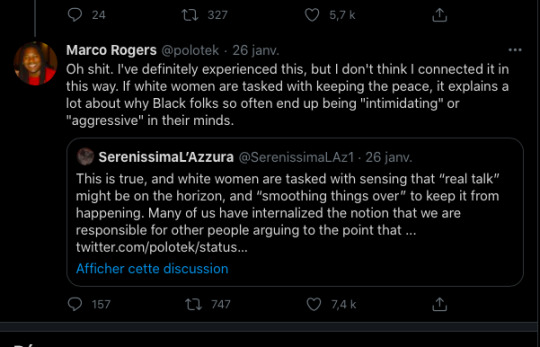#whe atley
Text
i need to do crazy things to his cervix
#BITES MY PILLOW AND SCREAMS#WHAT THE FUUUUUCK#ooh my god ehwhw#wr#whe atley#oh my ggod#thdi is fucked'#somwoen help me plesa#i want him. i NEED him so fuckingn bad#jesus christ#monnie rambles
21 notes
·
View notes
Note
Make that many more but I was referring to beep-O and whe//atley-
ah i see
1 note
·
View note
Text
Single Mothers Will Probably Cry During Every Episode Of Queen’s Gambit - Episode 2
Episode 1, which I wrote about yesterday, was called Openings. It walks the viewer through Beth’s childhood trauma. The violent car crash she survives, and her entrance at an Orphanage where she discovers tranquilizers and the Chess Board.
In the first episode, Beth connects with her mother through fashion, which manifests in embroidery, that her young mind associates with the chessboard.
Yes, in the first episode, we see young Beth using tranquilizers to cope with the pain her mother’s passing has caused her. But Beth didn’t learn substance abuse from her mother. In fact, we never see her mother using mind altering substances through out the series. That is something Beth learns from mainstream society, symbolized by the orphanage, and later the Wheatley household.
Lesson 2 : Dissociate. Sometimes.
At the beginning of Episode 2, we watch as Beth gets adopted by the Wheatleys. The viewer is uneasy during the first couple of minutes. We observe nervously as Mr Wheatley stares at her in the mirror of the car. Afraid that he might try to sexually assault her once she is in his home. We relax as we watch the car park in front of a nice house in the suburbs of Lexington. For a glorious minute, we think that Beth is saved. She has a beautiful roof over her head, a mother and a father, a new high school.
The Wheatleys have the perfect house in the suburbs, a richly decorated interior, a piano. But quickly Beth comes to observe that Mr Wheatley detests being around his wife, that he disapears ever so frequently to other cities. And that most of all, he exercises a power over Alma that seems stronger than the laws of Nature.
We see that whenever Alma begins to discuss a topic he is not interested in, he clears his throat and she immediately turns to more unsignificant, meaningless chit chat. As he disapears into the black hole of his “business trips”, we understand that adopting Beth was merely an exit strategy for Mr Wheatley. He wants to give his wife a companion before checking out. He wants to leave her and can’t stand the marriage, but he doesn’t want to feel guilty about it.
We discover that Alma has an addiction to alcohol and cigarettes. That her doctor prescribes the same tranquilizers that Beth used in the orphanage. And that she washes away her brain with these substances day in and day out. it is difficult to watch Alma stare at the television as she works through a six pack, or lay in bed all day with a terrible hangover, only to blame it on a “virus”.
In this episode, which might as well have been called the “Feminine Mystique” we explore the topic of women’s existential crisis in the 50s and the advent of second wave feminism. Alma discovers that adopting Beth does not solve all of her problems, that she still feels miserable. That “the problem with no name” as Betty Friedan called it, is still very much present in her life. So what is it? Why does she need to drink? What is she trying to numb?
It is no secret that during the Second War World, women were called upon by the Western governments to join the workforce.

They worked in factories, offices, telephone centers and kept the economy going as their husbands, sons and brothers were sent to fight Hitler’s Germany. During this period; women proved that they could get the job done. And when their husbands came back from the front, a massive intellectual movement was launched. The purpose of this new mouvement was to send women back home. Betty Friedan, (who is clearly Beth’s namesake) theorized this in her 1963 best seller : the Feminine Mystique.

She explains how College Professors, Journalists and General Practicians all flocked together to create a new narrative. In the 15 years between 1945 and 1960 the mouvement was so strong that American women were getting married at younger ages than in the third world. They were getting pregnant before high school graduation. And the few that went to college dropped out as soon as they could get a ring on their finger.
A smear campaign was launched to discredit the “feminists” that had “gone too far”. They were trying to “be men” and they had only managed to become bitter, ugly, spinsters. This message was repeated over and over again, in the magazines and TV shows. Women were caged in their homes, bored to death and miserable. They went to therapy where they were diagnosed with “penis envy” and sent home with tranquilizers.
To paraphrase the great Nigerian feminist novelist Chimamanda Bgozi Adichie, women were being raised to aspire to marriage which is all fine and dandy until they realized that men were not being raised to aspire to marriage. Not at all. They were raised to pursue exciting adventures, to challenge their great minds, to adopt a hobby and become the best at it. They came home to depressed wives, that had little to contribute to the partnership. The men, like Mr Wheatley, were uncomfortable, it was unbearable for them to be married to such souless creatures.
So the business trip was invented!
What is remarquable about Betty’s account of what it is to be an intellectual woman in the U.S.A. during this period; is that she explains that the previous generation was the exact opposite of this. The mothers of the Bettys were the Alices. Mathematicians. College educated women. They had fought in what is now dubbed the first wave of feminism. Obtained the right to go to school, to have a bank account, to vote. They were the sufragettes. They wore white and relayed each other on the picket fence. They had fought very hard to obtain the right to exit the home, to stop belonging to men, to own property. And now their own daughters were being brain washed to abandon all of these rights and cage themselves. It was devastating to witness such a thing. I believe Alice’s character is named after Alice Paul who obtained the right to vote in 1920.

The first time Beth sees Mr and Mrs Wheatley argue, she sees the way he humiliates his wife. They are seen arguing in the driveway. He is leaving, he holds his briefcase and is about to enter the vehicle. In a couple of sentences, he tells her she’s a terrible driver, that she needs exercise, and belittles her new companion. In his own words: “She doesn’t seem like she has a whole lot to say”. Once Mr Wheatley leaves, Mrs Wheatley takes to the piano and plays a melancholic song beautifully. Beth comes down the stairs and watches. Mrs Wheatley pretends like she isn’t sad her husband left, like she doesn’t sense that he is in fact leaving her. That she doesn’t know that the business trip is a lie. She tells Beth “Please stop gawking you’re making me nervous”. In this scene, when Mrs Wheatley sees Beth coming down from the stairs she says in a fake, sweet voice: “You’re up early, must be all of the excitement due to your first day of school”.
When she does this, Mrs Whealtey is actually engaging in something called “The prevention of real talk”. Marco Rogers, who goes by the handle @polotek on Twitter theorized this in a tweet in January 26th.

He continues

Twitter user @SerenissimaLAz1 chimed in and confirmed that white women were tasked with the Prevention of Real Talk. We see Alma do this several times during the episode. Every time she senses that a conflict might occur, she changes the topic of the conversation; adopts a fake sweet voice and steers the energy away from the issue at stake.
Instead of being honest with Beth about the state of her marriage, her doubts, she makes up a little story in her head. Nothing is wrong. Beth is excited for school. Beth then asks her head on : Where is Mr Wheatley? And Mrs Wheatley tells her that he must travel once more. She makes a sentence that seems to say that she believes him. And adds a snark comment at the end “As he likes to remind me, he puts the roof over our head”.
Thus, Mrs Wheatley summarizes the second wave of feminism. Women in the 50s could not win a single argument with their partners and had to resign every fight because in the end they weren’t the breadwinners. The were “just” the homemakers.
Beth then tells this new mother of hers that she plays the piano beautifully and Mrs Wheatley tells us that she always dreamed of joining the orchestra, but that she had stage fright. Then she got pregnant.
Beth looks out of the window at the end of the episode. She’s started menstruating. She is atracted to some of her opponents in the chess tournament. She has learned that women that live inside of suburban houses are miserable. As she looks out in the window, and into the quiet driveway, she sees Alice’s face. Alice tells her “Close your eyes”.
These were Alice’s last words before she crashed into the truck, as we have explained. But here, they take on a new meaning. What Alice is telling Beth, is that in life, she will sometimes have to learn to dissociate from the situations she finds herself in.
According to the Better Health Channel:
Dissociation is a mental process of disconnecting from one’s thoughts, feelings, memories or sense of identity.
The dissociative disorders that need professional treatment include dissociative amnesia, dissociative fugue, depersonalisation disorder and dissociative identity disorder.
Most mental health professionals believe that the underlying cause of dissociative disorders is chronic trauma in childhood.
The episode presents the dissociative process that single mothers follow to cope with the realities of patriarchy. And how, when they do this, they make their chldren, espeacially their daughters, feel anxious. It is scary to think that the female adults are telling you to “close your eyes”. What is it that they don’t want you to see? And how long can they hide it from you? Mrs Wheatley tries to conceal her pain, use a sweet voice and stuff herself with tranquilizers. Alice is brutally honest, tragically self aware. Alice decides to live in a trailer, removed from society. She does not lie to her daughter. She lives in her own truth. But still, she says : Close your eyes.
To win the tournament, her very first tournament, Beth uses the tranquilizers she stole from Mrs Wheatley. She can’t stand her own emotions, they are too painful. She is too afraid. She remembers the life lessons from Mrs Wheatley (Drink your pain away; be numb, pretend everything is fine, use a sweet voice) and Alice’s lessons (Close your eyes). One could even argue she uses the lessons she learned at the Orphanage, because we see Beth use a snarky comment when she beats Beltik about how he should’ve been on time.
To beat Beltik, Beth blocked “it” out. In the terms of a psychiatrist : she dissociated. Pretended that she wasn’t under pressure, that no one was watching her, that she wasn’t losing. She ate the pill and mushed over her brain. Then she looked up at the ceiling and saw the pawns, and did what she learned to do at the orphanage. Visualize the board, move the pawns, envision every scenario, find the best move.
Beth rushed to the bathroom and takes the pill. She looks up at the ceiling and there is the chessboard. Finally she can focus on the board, and work her way out of the pickle she’s in. Win the tournament.
She comes back from the bathroom with a weird, relaxed look in her eyes. And she wins.
Steady cold. And with the money from the tournament she buys more dresses.
1 note
·
View note
Text
has to make a robot a human for a modern au and is thinking about how to describe him
fuck its the whe///atley shit all over again
1 note
·
View note